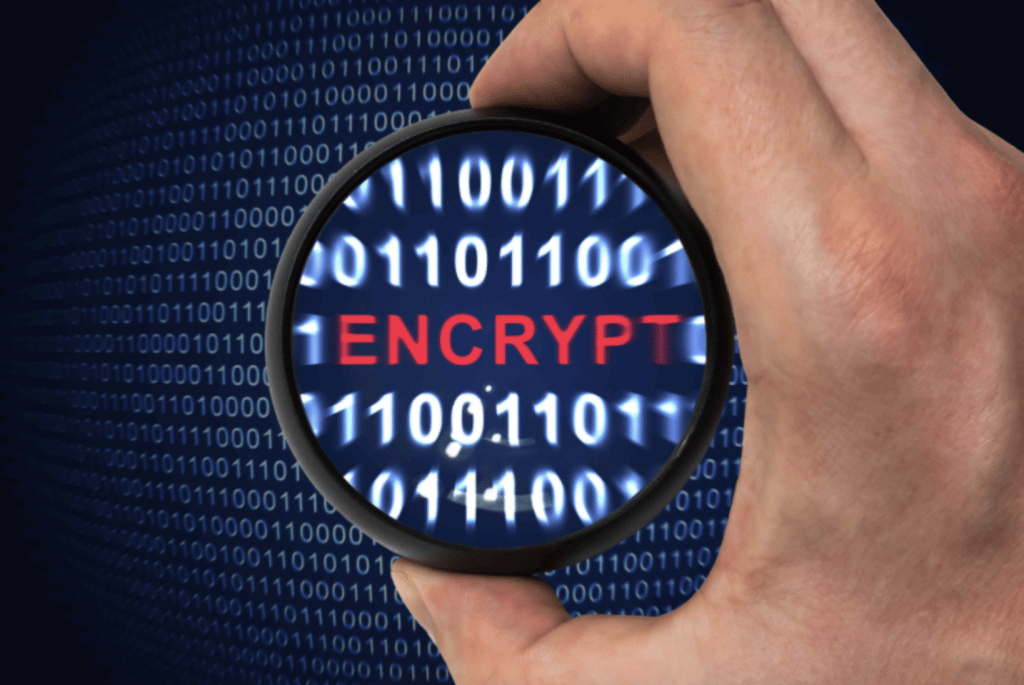Data is a valuable currency in today’s world. Hackers want it, and companies need it to understand and serve their customers. With data only becoming more covetable by cybercriminals and businesses alike, encryption is a hot topic in the cybersecurity world.
We called on the experts at ESET to put together an introductory guide to encryption and its role in data security. It covers all the big questions: what is encryption, how it works, and why it’s important for businesses of all sizes to add to their agendas.
What is data encryption, exactly?
Encryption is the process of converting data from something a human can read to a format called “ciphertext,” which is encoded, random text. In a nutshell, it makes that data incoherent with the help of a cryptographic key, a string of characters that are jumbled up to alter the data. The more complicated the key, the better the encryption.
Think of data as a door, and the cryptographic key as a physical key you might use to get into your house. When data has been encrypted (locked), it can only be read by someone who has the key to decrypt (unlock) it. It’s extremely difficult for cybercriminals to decrypt and access encrypted data on their own.
Encryption is a simple form of data security, and individuals, companies and corporations alike use it to protect information that’s sent between browsers and servers. With encryption in place, your data will only be accessible by authorised users.
The different types of encryption
There are many encryption algorithms out there. It’s an evolving sector of cybersecurity: when older algorithms become compromised or less secure than coders would like, new algorithms are created to address those flaws, and the cycle continues.
In your research on encryption, you might have come across algorithms like Data Encryption Standard (DES), Triple Data Encryption Standard (3DES), Advanced Encryption Standard (AES), and Rivest Cipher 4 (RC4). These are all common algorithms that work to turn data into ciphertext.
They fall into one of two categories. Symmetric encryption uses the same key to encode and decode data. It’s fast and suitable for most people and businesses. On the other hand, asymmetric encryption uses different keys to encrypt and decrypt. The person who owns the data keeps one key private, and shares the public key with authorised users. Both types of encryption are effective for the purposes of protecting data.
As a business owner, you may have also heard about end-to-end encryption, like in the context of messaging platforms like WhatsApp. With end-to-end encryption, the two users who are sending data back and forth have access to encryption keys — while the overall service provider doesn’t. So, with WhatsApp, you can read conversations you have with your contacts, but Meta (WhatsApp’s owner) can’t.
Why is encryption important for businesses?
In the simplest terms, encryption keeps your company’s information private. It makes it much harder for that data to be stolen, compromised and used for malicious purposes.
Here are a few other benefits of encryption for businesses:
- Protects data across devices. Do your employees work remotely or use cloud systems to communicate and complete tasks? Encryption keeps data safe while it’s being transferred between devices and systems. Top tip: Enabling multi-factor authentication (MFA) adds another layer of security and helps ensure only authorised users are accessing data.
- Helps prevent loss or corruption of data. The shift to remote work raised many issues, including cybersecurity risks. With employees accessing data from home and other locations that may not be as secure as the office, encryption is a good way to safeguard the loss of data. Also, cybercriminals not only steal data, but they change it. If your company does fall victim to a data breach, encryption means it will be easier to detect any data corruption.
- Allows your company to stay compliant. Depending on the industry you work in, you likely have data standards to adhere to. For example, there are strict controls on the ways healthcare providers can use, store and share patient data. In creative industries, protecting copyright and intellectual property like songs and movies is a huge concern. encryption helps companies to follow regulations and ensure their data remains within prescribed limits.
Put passive encryption in place today
Ideally, all of your company’s data should be end-to-end encrypted, with access limited to authorised users who need that information to do their jobs. ESET Protect Complete is suitable for businesses for all sizes. The multilayered software features ESET’s Endpoint Encryption, which works to encrypt system disks, partitions or entire drives in a seamless way. It protects company data anywhere, anytime, and prevents the type of data breaches that can have devastating effects on a business. The software also provides full, remote control of endpoint encryption keys for added peace of mind,
Looking for more simple ways to safeguard your company’s information? Check our ESET’s company identity and data protection solutions, and reach out to the team with any questions.
